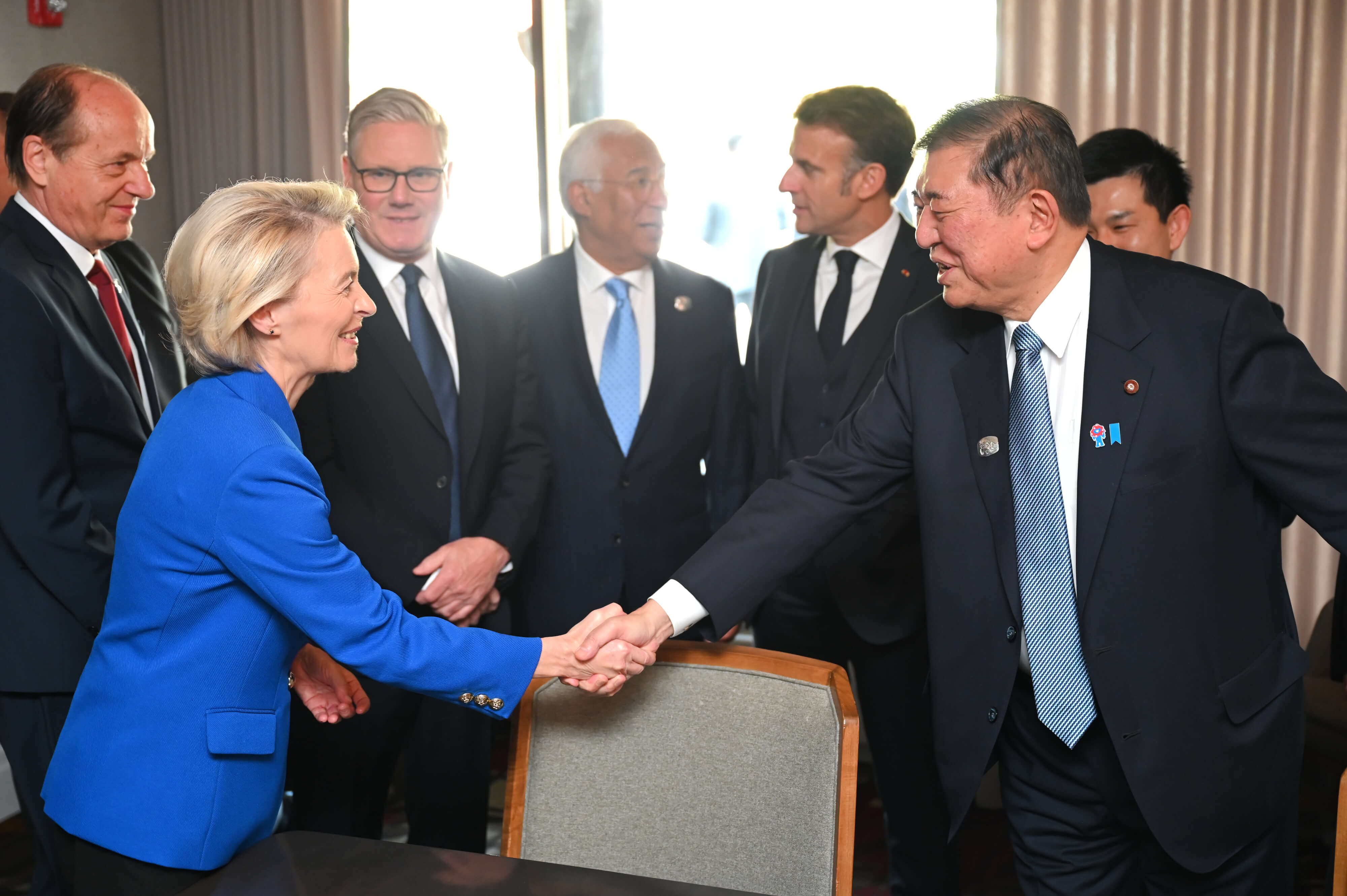America’s critics have always depicted it as a selfish country that throws its weight around with little regard for others’ well-being.
But President Donald Trump’s trade policies have been so misguided, erratic, and self-defeating as to make even the most cartoonish of such descriptions seem flattering.
Still, in a twisted way, his trade follies have laid bare other countries’ failures as well, by forcing them to consider what their responses say about their own intentions and capabilities.
It is said that one’s true character is revealed in the face of adversity, and the same goes for countries and their political systems.
Trump’s frontal assault on the world economy was a shock to everyone, but it also gave Europe, China, and various middle powers an opportunity to make a statement about who they are and what they stand for.
It was an invitation to articulate a vision of a new world order that could overcome the imbalances, inequities, and unsustainability of the old one, and that would not depend on the leadership – for better or worse – of a single powerful country. But few rose to the challenge.
The greatest disappointment
In this respect, the European Union has perhaps been the greatest disappointment.
In terms of purchasing power, it is almost as large as the United States – accounting for 14.1% of the world economy, compared to 14.8% for the US and 19.7% for China.
Moreover, despite the recent rise of the far right, most European countries have avoided backsliding into authoritarianism.
As a collection of democratic nation-states whose geopolitical ambitions do not threaten others, Europe has both the power and the moral authority to provide global leadership. Instead, it dithered and then submitted to Trump’s demands.
Rarely has the EU’s structural weakness been on starker display
Europe’s ambitions were always narrowly parochial; but in folding to Trump, it is not even clear that it served its own immediate interests.
The July handshake deal between Trump and European Commission President Ursula von der Leyen leaves 50% tariffs on European exports of steel and aluminum, places 15% tariffs on most other exports, and commits Europe to ridiculously high levels of energy imports from the US.
Rarely has the EU’s structural weakness as a confederation of countries without a collective sense of identity been on starker display.
China has played a tougher game
China has played a tougher game, retaliating forcefully with its own tariffs and restricting exports of critical minerals to the US.
Trump’s vindictive, self-defeating foreign policies have helped China extend its influence and enhance its credibility as a reliable partner for the developing world.
But the Chinese leadership has also failed to articulate a practical model for a post-neoliberal global economic order.
Notably, China has shown little interest in addressing the two global imbalances that it has caused with its own large external surplus and excess of domestic savings over investment.
Smaller countries and middle powers have mostly played the quiet game
Meanwhile, smaller countries and middle powers have mostly played the quiet game, pursuing independent bargains with Trump and hoping to limit the damage to their own economies.
The exception is Brazil, whose president, Luiz Inácio Lula Da Silva, has emerged as the rare exemplary leader who refuses to grovel at Trump’s feet.
Despite facing punitive 50% tariffs and pointed personal attacks, he has proudly defended his country’s sovereignty, democracy, and independent judiciary. As the New York Times puts it, “There is perhaps no world leader defying President Trump as strongly as Mr. Lula.”
Such leadership has been sorely lacking around the world. In India, the political commentator Pratap Bhanu Mehta points out that many business and political elites are searching for ways to accommodate Trump.
But in doing so, Mehta argues, they are misreading him and the world he is creating. At any other time in recent history, the Trump administration’s behavior would immediately be called out for what it is: imperialism – plain and simple.
Finding common purpose
Imperialism must always be challenged – not accommodated – and that requires both power and purpose.
Of course, America has held the reins of the world economy for a very long time. The dollar is firmly entrenched, and the US market remains singularly important.
But these advantages are not as strong as they used to be. It would defy political logic and the laws of economic gravity if a country controlling only 15% of the world economy (in terms of purchasing power parity) could dictate the rules of the game to everyone else.
 If Trump “wins,” it will be because other large economies were unable (or unwilling) to articulate an alternative framework for the global economy
If Trump “wins,” it will be because other large economies were unable (or unwilling) to articulate an alternative framework for the global economy
Though the rest of the world remains divided, surely everyone has a common interest in repelling Trumpian imperialism – and thus in uniting to resist his demands.
Finding common purpose is perhaps the bigger challenge. If Trump “wins,” it will be because other large economies were unable (or unwilling) to articulate an alternative framework for the global economy.
Pining after traditional multilateralism and global cooperation – as many targets of Trump’s ire have done – is of little use and merely signals weakness.
The world needs new ideas and principles for avoiding both the instabilities and inequities of hyper-globalization and the destructive effects of beggar-thy-neighbor policies.
It is not realistic to expect a new Bretton Woods agreement. Nevertheless, middle powers and large economies can still model such principles by putting them to work in their own policies.
Trump’s actions have held up a mirror to others, and most should recognize that their reflection is not a pretty sight. Fortunately, their apparent helplessness has been self-imposed. It is not too late to choose self-confidence over humiliation.
Dani Rodrik, Professor of International Political Economy at Harvard Kennedy School, is Past President of the International Economic Association.